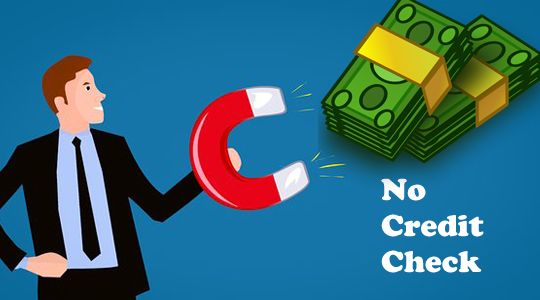Types of loans you must know about
Financial crunches are the unanticipated souvenirs that come without being bargained for. These monetary requirements need to be fixed by retrieving funds that will help in providing the money to fulfill the immediate financing needs. These kinds of situations may arise either at the business levels or at the individual levels. There are different types of funding sources depending on the needed liquidity amount, the bearer, the available sources, the eligible criteria, etc.Based on the requirements, fund financing can be categorized as for – Long-term needs, medium-term needs, and short-term needs. On the individual levels, the short-term needs are the most preferred type of loan. There are many sources that provide short-term financing needs. They include the bank loans, bank credits, short-term loans, co-operative bank loans, bank overdrafts, credit cards, a line of credit, etc. Here is a little information about a few types of loans.
Bank Loans
There are many commercial and government-run banks that will provide the necessary financial aid to business organizations and to individuals which is known as Bank Credit. Banks offer credits in the form of cash credit, cash loans, overdrafts, etc. A loan refers to the cash that is advanced by a bank which has to be repaid by the borrower as scheduled amounts in a given period of time. The borrower will have to pay a fixed amount of interest for the loan amount. Usually, banks grant such loans against an asset which is placed as surety.

Bank Credits
It is the financing aid in which the borrower can draw up to a certain limit of money from the bank. This is called as Cash Credit limit, which is usually specified up to a specific time period. The borrower may extend the period for this credit limit by renewing the deal until 3 years. A payable interest is applied by the bank for the amount that has been withdrawn and not for the whole applied loan amount. The bank provides the cash credit loan against collateral as security.
Bank Overdrafts
When a bank allows their member to draw an amount of money that is way beyond their withdrawal limits or above their set limit of funds, it is called as an Overdraft. They are short-term emergency funds that are repaid within a short notice period. Usually, these types of loans have huge interest rates levied on them.
Line of Credit
Banks provide a Line of Credit (LOC) to a customer in which a maximum amount of money that can be withdrawn by the borrower is given by the bank and the borrower is allowed to withdraw any amount of money that is within this line of credit. Such types of loans work out when the borrower does not have a clear idea of how much money to withdraw for the purchases or expenses. The bank levies interest only on the amount that is withdrawn. It is a rotational loan in which the borrower can keep withdrawing and paying back the loan within the credit limits.
Co-operative Banks
Co-operative banks are typically established at the state levels and at the local levels. They are the best when it comes to securing small sized loans. Although they function primarily like the conventional banks, the primary function of the co-operative banks is to provide a loan at the business level and for individuals.
Title Loans
The title loans are also known as “auto loans” in which a borrower can take a loan against a title of an automobile, termed as the “vehicle title” that is placed as collateral with the bank. Most of the times, it is a car that is used as a title, whereas in rare cases, a truck or a motorcycle can also be pledged as the title for an auto loan.
Mortgage Loans
Mortgage loans are mostly home loans where a borrower applies for a loan to make purchases or real estate property. The home or the property that is being purchased is usually put up as a mortgage to the bank against which a loan is sanctioned. So, in case of default loan payment, the lender possesses the right to sell or possess the secured property. A fixed or a floating interest rate will be issued on the loan depending on the bank.

Student Loans
Student loans are provided for the federal students that help in pursuing their post-secondary course of studies. Much of the associated costs of tuition, grants, books, scholarships, and other supplies shall be included in the federal student loans. The repayment schedule is flexible and the interest rates are low compared to other types of loans. Most of the federal students have their student loans approved easily. The loan gets approved irrespective of the student’s income or their parent’s income levels. The typical repayment schedule starts somewhere between 6 – 12 months after the schooling and educational course are completed, irrespective of whether the student has successfully completed the course.
Merchant Cash Advance
Merchant Cash Advance is a kind of business loan which is more of a cash advance method. A cash advance is given to a business based on their credit sales and their underlying performance in the market. The MCA is usually paid back depending on the percentage of sales made by the business.
Short-term Loans
As the name suggests, short-term loans are small loans that are usually repaid within a scheduled short period of time. They differ from the other type of loans like the title loans or the mortgage loans in not having to place any asset as collateral. They are mostly unsecured loans which do not need any collateral or co-signer or any other of guarantee. Short-term loans are usually taken when the other possible ways of obtaining a loan have been exhausted or if the borrower does not qualify for any of them. They are usually obtained to satisfy the temporary needs that require a working capital and are paid back in a short tenure. Payday loans are repaid as a lump sum and Installment loans are repaid as smaller installments.
Most Common Types of Individual Loans
At the individual levels, there are different types of short-term loans which are provided by the conventional banks or by the private money creditors. They are mostly referred as personal loans as they are taken by an individual to fulfill their immediate financial necessities or during emergencies. The 2 most common types of loans that are availed by individuals are the – the Payday loans and the Installment loans.
Payday Loans
Payday loans are short-term loans that are usually payable on the next payday. It is more often referred as cash advance loan, or small-dollar loan, or quick cash loans. It is called a ‘Payday loan’ as it repaid usually on the day when the paycheck arrives; as a ‘cash advance loan’ since the cash is given in advance to the borrower by the lender; as a ‘small-dollar loan’ since small amounts of money is taken as loan; as a ‘quick cash loan’ since the cash loan is approved quickly compared to other types of banking loans.
Situations like a broken pipe, or a car repair or an immediate travel plan or an unexpected party may pop up without prior intimations. And it is mostly accompanied by financial crunches where there will not be enough money available handily. This is when a payday loan is applied for. They are usually taken to meet the immediate monetary requirements during circumstances which cannot wait until the paycheck comes in. It usually involves small amounts of money which are usually paid as a lump sum.
There is no necessity of collateral or any kind of guarantee. So, it becomes an unsecured loan which is provided on quicker grounds. Also, the credit scores do not matter much when a lender is verifying the authenticity backgrounds. Most lenders will provide personal loans without credit check criteria. The government has proposed several rules and regulations while a payday loan is applied for and for approving it so that the financial burden while repaying is as less as possible for the debtor. The criteria needed to qualify for getting a payday loan are quite simple and genuine.

Installment Loans
The other common type of short-term loan that is usually preferred by individual borrowers is the Installment loans. Even these loans are provided under the “personal loans without credit check” criteria. The installment loans are loans that can be availed on a quicker basis and can be repaid as smaller amounts of money in an anticipated period of time. The borrower and the lender can sit together and chalk out a plan for repaying manageable amounts of money over a scheduled tenure. The planning and the complete schedule are usually finalized depending on the borrowed loan amount and the income capabilities of the borrower.
Apart from having a manageable repayment schedule, the installment loans offer the “personal loans without credit check” amenity which makes it one of the most preferred kinds of short-term loans taken by individuals from private lenders. The main advantage of getting an installment loan is that the borrower can take a cash advance quickly and can repay it over a long period of time, whereas in a payday loan, the amount has to be repaid on the next paycheck day as a lump sum amount.
Most of the people get an installment loan for 2 main reasons – to increase the credit scores and to pay consolidated debts. Installment loans are most helpful during situations when there are a lot of impending debts and payments to be made. The borrowers will get a quick installment loan from a lender and will pay all the pending debts, bills, and other payments. They will then have to manage only 1 installment loan which is paid back in a planned way. In this way, the credit scores will also improve as the debts have been cleared and the installment loan can also be repaid in an orderly fashion. This way it is easier to handle a single loan than managing too many hassled payments.
Criteria for Getting a Payday Loan Or an Installment Loan
Since most of the short-term loans come with the “personal loans without credit check” requisite, they are always at the risk of jeopardy. So, the lenders will carry out a very brief verification process to check for the authenticity of the borrower. The following documents of proof should be submitted by the borrower to the lender while filing the loan application.
• Age – The borrower should be above 21 years of age and should have documents to prove that he is a legal adult. This is because of the conception that minors are not mature enough to take financial matters into their hands yet.
• Residency – It is a requisite for the borrower to be a permanent US resident. It is not important that the borrower be a US citizen, but he should be a legal permanent US resident
• Employment and Income – The borrower should provide proof of his current employment and show that there is a steady income. The installment plan will be scheduled based on the income amount so that there are enough liquidity brackets available to manage the other monthly expenses.
• Active Checking account – The borrower should have an active checking account in which the salary gets deposited on payday. The borrower will have to give a post-dated paycheck to the lender which can be deposited on payday or on a scheduled day.
How Are These Loans Different from the Other Bank Loans?
There are quite a number of reasons to quote how a bank credit is different from a short-term credit. It is important to check for all the terms and conditions and choose which type of a cash credit is important. If there is a lot of time at hand and if the credit history is stellar, then a bank credit would obviously be the first choice. However, most of the situations in which a quick cash advance is needed do not come with a lot of time on hand. So, the best option would be to explore and choose for an apt short-term loan or an installment loan.
Here are a few reasons why short-term and installment loans are better than bank loans.
• Easier Rules – The conventional banks impose a lot of stiffer rules, regulations, and terms when it comes to processing and approving a loan, whereas, the private money lenders will not put forth as many terms and rules. Also, the loan applying criteria is stringent in the banks compared to the private lenders.
• Quicker Processing – The banks follow a strenuous verification process and their processing involves a lot of paperwork. This process is bound to eat up a lot of time. So it becomes a highly unfeasible option when the cash is needed for an emergency or if the situations have time constraints. In contrast, the private lenders will carry on an amenable verification process and only look for the authenticity of the borrower.
• Faster Approval Times – Due to the lengthy processing times by a bank, the approval times also get delayed. And because of the stricter rules, the applicants are left hanging in between hope and doubt for long time periods, unlike the cash advance private lenders where most of the short-term and installment loans are approved on the same day within a few hours or by the next business day.
• No Credit Check - There are many reasons why a payment could have been missed or defaulted which will adversely affect the credit scores. The conventional banks will not take into regard the situations due to which there was a defaulted payment. They will only check the credit scores while approving a loan. If there credit history is poor, then the possibility of getting a loan from a bank is very unlikely. However, the private money lenders will not take the credit scores and background into consideration while processing a loan application. They will only look for a current steady income to be assured that the money is being given to a genuine borrower who has the capacity to pay back the loan on time.

• Manageable Options – Unlike the banks which will give out a fixed repayment plan, the private lenders provide the option where a borrower can discuss and plan the installment amount, APR, and repayment tenure depending on the income and necessities of the borrower. The private creditors will also offer online options to file the loan application and the money will be deposited by the wire in the checking account once the loan is approved.
Repayment Process
Most of the short-term loans and installment loans are taken as a cash advance in which smaller amounts of money is taken as a loan for a shorter time period. Since the time period is short, the lenders will apply appropriate interest rates so that they can avail some profit in their business. Most repayments are completed within a short period that range from 4 - 8 weeks up to a few months or years depending on the loan amount and the income levels of the debtor.
If a borrower takes a payday loan, then the loan amount should be repaid typically on the payday or when the next paycheck comes in. The payment date is synced with the paycheck day of the borrower. The borrower will usually hand over a post-dated check to the lender who will deposit the check on the scheduled repayment date.
If an installment loan has been availed, then the borrower will have to pay back the loan amount as smaller installments over a scheduled tenure. The borrower can either give post-dated checks to the lender who will deposit it every month on a scheduled date or the borrower will transfer the installment amount electronically into the online account of the lender on a regular basis.
Once all the payments have been paid back successfully, the credit scores will improve. Also, after the successful repayment of one short-term loan, if the borrower and lender still share a good business relationship, there is a very high possibility that any subsequent loans if applied will be approved easily.
Be Vigilant
Since the short-term loans and installment loans are unsecured loans which do not need collateral or a guarantor, there is a high possibility that the loan borrower may trick and cheat the lender by defaulting payments. Also, there is a risk of lending the money to an unreliable person as the credit scores are also not considered. So, to compensate for any such kind of a loss, the money lenders will apply appropriate APR to the borrowed loan amounts.
Also, during desperate times people only look for a solution that can help solve the situation and that is when many conmen take advantage of the helpless circumstances. It is important to be wary of such scammers and swindlers who will take advantage of destitute individuals and apply very high APR that will shoot to the stars. So, it is important to research well and look for a state-licensed money lender who will follow the federal rules and issue APR within appropriate limits.
Whenever there is an urgent need for money either for paying consolidated bills or for an emergency, it is important to be wary of all the possibilities before choosing a lender or the type of loan. It is also essential to familiarize with the technical terms and understand the complete agreement including the rules, regulations, and the repayment terms like the installment amounts, the APR, the payment schedule and the repayment dates before any kind of agreement is finalized.
So, by keeping in mind all the factors, it can be concluded that cash advance borrowers will choose a short-term loan or more preferably an installment loan which is better than opting for a bank loan because it is a more manageable, much easier, and a more convenient method of getting an urgent loan processed that will be approved instantly and will provide the borrower with immediately needed liquidity that can be used to overcome the temporary financial crisis and emergencies.
Recent Posts
- Typical Requirements While Availing Business Loans For Small Businesses
- Secured Business Loans vs. Unsecured Business Loans – Which Is Better?
- Need Personal Loans Online – 4 Pointers To Get Them Right
- 4 Major Financial Mousetraps You Should Avoid
- Know What The Future Of Payday Loans Is
- 3 Most Common Myths Busted About The Payday Loans
- Simple Facts To Consider Before Availing Online Installment Loans
- Is Availing A Short-term Business Loan The Right Financial Solution For You?
- Prime Facts To Bear In Mind While Availing Quick Cash Loans
- The ABC’s of Getting Unsecured Bad Credit Loans
- Why Are Instant Payday Loans Good Solutions for Sudden Financial Crunches?
- Line Of Credit – What You Should Know About It?
- Minutiae About the Auto Title Loans
- Installment Loans vs. Auto Title Loans
- Types of loans you must know about
- Online Installment Loans – A Boon to Handle a Blow
- Count Your Costs While You Are Still Broke
- Payday Loans – Everything about What They Are and How They Work
- Brief History Of Credit Scores Best Practices To Improve Them
- Why are Credit Loans Preferred over a Bank Loan?
- 10 Ways To Secure Your Personal Loan in 2018
- How Does Your Credit Score Affect Your Payday Loan?
- 5 Ways To Get A Payday Loan Even With Bad Credit
- Why Do You Get Bad Credit Even With Good Income?
- How To Improve Your Credit Scores
- The Perks of Having Installment Loans